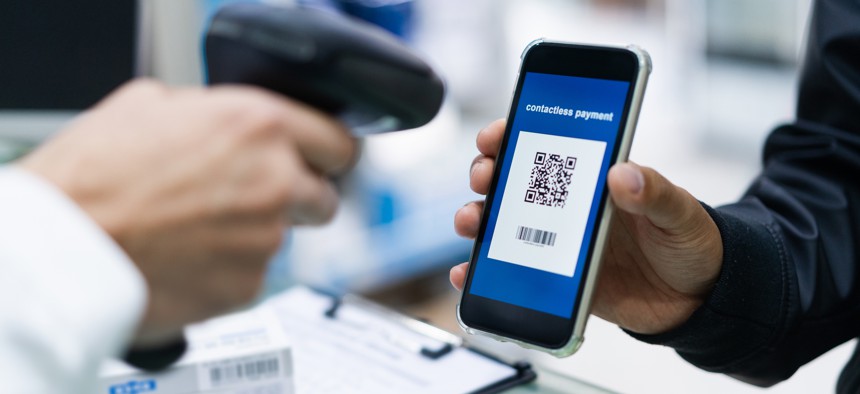The Benefits of Digital Payments Automation for Local Government

Getty Images/Dowell
COMMENTARY | Digital billing can improve collection efficiencies, reduce call volumes and save organizational costs and resources.
Over the last few years, digital payments have shifted from a convenient option to a fundamental necessity, driven by the contactless requirements of the Covid-19 pandemic. Though digital payments are massively popular in the United States—over 80% of Americans made a digital payment in 2021, according to McKinsey—many local government agencies are lagging when it comes to digital payments adoption.
While corporate America has been the primary driver for cashless adoption, government organizations have not kept pace despite proven benefits like accelerating collections, decreasing late and delinquent payments and boosting customer satisfaction levels. Though the many conveniences around digital payments are clear, these options are still not commonly offered across the industry.
Integrating easy-to-use, digital options enables workers to spend less time on payments-related tasks while offering residents a convenient service.
Digital Payments Saves Time
A recent report titled Modernizing Collections for Improved Efficiencies finds that the average government employee spends 10 to 20 hours a week on phone calls related to billing and payments. Nearly 20% of respondents report that staff spends more than three hours per day just fielding billing and payment-related calls.
Fielding calls isn’t the only task burning employees’ hours; 87% of government organizations still mail residents bills, creating unnecessary and mundane tasks for employees.
Rather than chasing down late payments or fielding countless customer calls, digital payments act as a force multiplier, enabling employees to spend time on high-priority projects, boosting overall output, organizational efficiency and employee morale.
Automation Powers Data
Automating payments enables agencies to optimize data collection, a crucial tool for catering to individual user preferences, impacting the customer experience. Agency employees can also use the data to replace the manual analysis of trends, saving time and decreasing errors. As an example, 17% of organizations have no way to determine what percentage of collections are late or do not arrive, not only impacting expected monthly receivables but also wasting time and resources following up with delinquent payers. Automating payments captures this data so the process can be accomplished digitally.
Digital Payments Boosts Revenues
The pandemic created a financial strain on local government budgets across the country. Though there’s no “one-size-fits-all” solution to closing budget gaps, the implementation of digital payments is one approach that has a trickle-down effect on budgets. This is especially important for municipalities because there is a direct correlation between how much money there is to allocate toward education, maintenance, programs and activities for residents, a powerful factor in ranking a town’s performance.
Local government revenue traditionally derives from the property, sales and other taxes. An aggregate of late payments can cause a significant financial burden, according to the 73% of respondents who reported that late or delinquent payments are an issue for their organizations. Automated options and organizational features, like email payment reminders, can help drive on-time payments, even if there’s a long period between billing and the collection due date.
Municipalities also spend a lot of money absorbing convenience fees for residents. A common belief is that customers won’t take advantage of digital payment methods if convenience fees are involved, but that isn’t necessarily true.
Regardless of specific goals like saving money, time, or employees from burning out, digital payments adoption proves an accessible solution for satisfying both residents and employees, improving overall experience across the board. As businesses and agencies continue to advance and adopt diversified payment methods, residents will increasingly demand various payment options everywhere they spend money.
Patty Melton joined InvoiceCloud in 2021 as the regional director for tax. She has many years of experience in local government, including working with the National Association of Counties and the National League of Cities.
NEXT STORY: Baseball Players Press Lawmakers for Minor League Labor Standards





